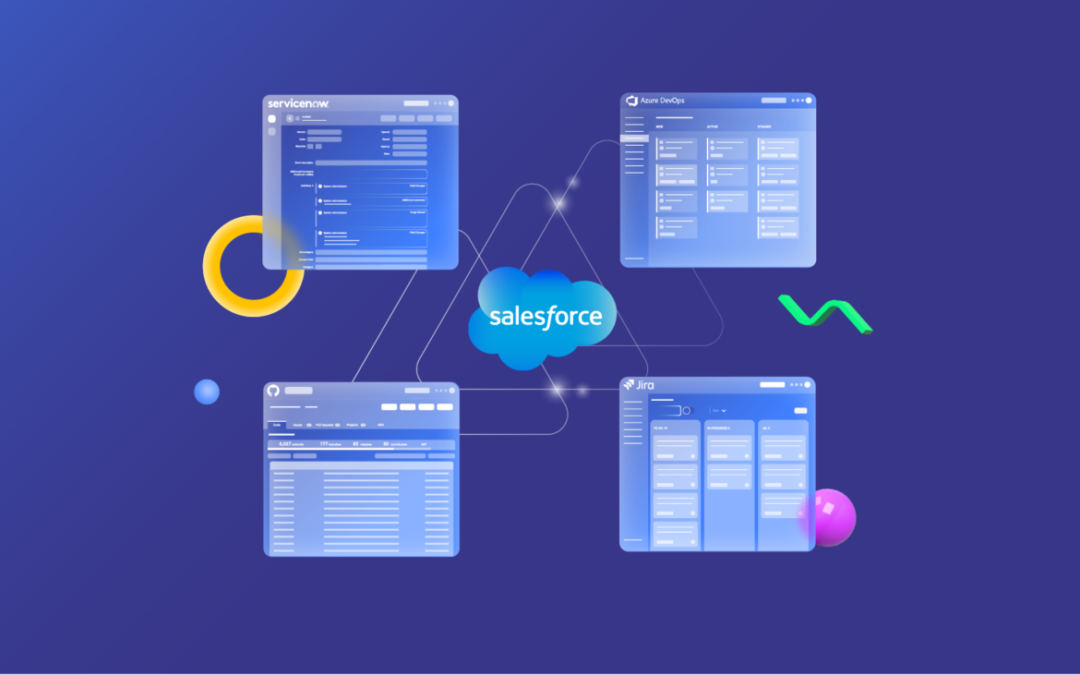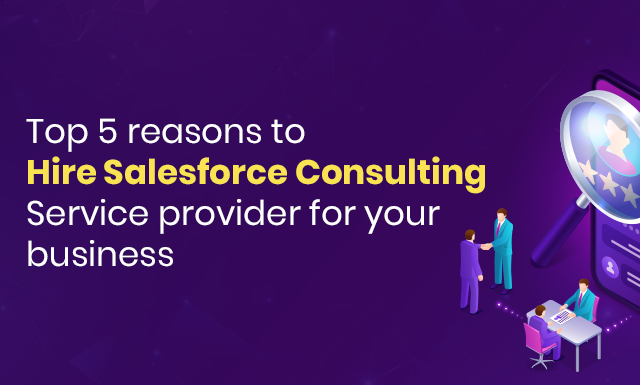
by Ivan | Jul 10, 2024 | Salesforce Consulting Services
In the fast-paced world of startups, efficiency and scalability are crucial. Salesforce, a robust customer relationship management (CRM) platform, can be a game-changer, but managing it effectively requires expertise and resources that many startups may not have. This is where managed Salesforce services come into play. Let’s explore the key benefits of leveraging managed Salesforce services for your startup.
- Unified Customer View
Integrating Salesforce with your customer service tools provides a comprehensive, unified view of each customer. This integration consolidates customer data from various touchpoints, enabling service agents to access all relevant information in one place.
Benefit: With a unified customer view, service agents can quickly understand the customer’s history, preferences, and previous interactions, allowing for more personalized and efficient service.
- Improved Response Times
In customer service, speed is of the essence. Salesforce integration can streamline workflows and automate routine tasks, resulting in faster response times.
Benefit: By automating case creation, routing, and escalation processes, service requests are handled more quickly and efficiently. This ensures that customers receive timely responses, enhancing their overall experience.
- Enhanced Case Management
Effective case management is crucial for resolving customer issues promptly. Salesforce’s case management capabilities can be significantly enhanced through integration with other service tools.
Benefit: Integrating Salesforce with tools like live chat, email, and telephony systems allows for seamless case management. Service agents can track and manage cases from multiple channels within a single platform, ensuring consistent and efficient case resolution.
- Proactive Customer Support
Predictive analytics and AI-powered insights from Salesforce can help businesses anticipate customer needs and address issues before they escalate.
Benefit: Integrating Salesforce with AI and analytics tools enables proactive customer support. By identifying patterns and trends in customer data, businesses can take preemptive actions, such as sending reminders or resolving potential issues early.
- Increased Agent Productivity
Integration of Salesforce with other business systems reduces the need for manual data entry and allows service agents to focus on high-value tasks.
Benefit: Automated data synchronization between Salesforce and other systems ensures that service agents always have up-to-date information. This reduces administrative tasks and increases agent productivity, leading to more effective customer service.
- Better Customer Insights
Integrating Salesforce with analytics and reporting tools provides deeper insights into customer behavior and service performance.
Benefit: Businesses can generate detailed reports and dashboards that highlight key customer service metrics. These insights help identify areas for improvement, track service performance, and make data-driven decisions to enhance customer service operations.
- Seamless Customer Experience
A seamless customer experience is crucial for building long-term customer relationships. Salesforce integration ensures that customers receive consistent and high-quality service across all channels.
Benefit: By integrating Salesforce with other customer service platforms, businesses can provide a unified and coherent customer experience. This consistency builds trust and loyalty, encouraging repeat business and positive word-of-mouth.

by Ivan | Jul 10, 2024 | Salesforce Consulting Services
Salesforce, one of the most powerful customer relationship management (CRM) platforms available, can transform the way businesses operate. However, implementing Salesforce can be daunting, especially for beginners. This step-by-step guide will walk you through the Salesforce implementation process, ensuring a smooth and successful deployment.
- Define Your Objectives and Requirements
Before diving into the implementation, it’s crucial to clearly define your objectives and requirements. Understanding what you aim to achieve with Salesforce will guide the entire process
Step: Identify the key goals for your Salesforce implementation. These could include improving customer service, increasing sales efficiency, or streamlining marketing efforts. Document your business requirements and desired outcomes.
- Assemble Your Implementation Team
A successful Salesforce implementation requires a dedicated team with diverse skills. Assemble a team that includes stakeholders from various departments to ensure a comprehensive approach.
Step: Form an implementation team comprising project managers, Salesforce administrators, IT staff, and end-users. Assign clear roles and responsibilities to each team member.
- Choose the Right Salesforce Edition
Salesforce offers various editions tailored to different business needs. Choosing the right edition is crucial for meeting your specific requirements without overspending.
Step: Evaluate the features of different Salesforce editions (Essentials, Professional, Enterprise, and Unlimited) and select the one that aligns with your business needs and budget.
- Plan Your Data Migration
Data migration is a critical step in the Salesforce implementation process. Proper planning ensures that your data is accurately transferred and remains consistent.
Step: Conduct a data audit to clean and standardize your existing data. Use Salesforce’s data import tools to map and migrate your data from legacy systems to Salesforce. Test the migration process to ensure data integrity.
- Customize Salesforce to Fit Your Needs
Salesforce is highly customizable, allowing you to tailor it to your specific business processes. Customization ensures that Salesforce aligns with your workflows and maximizes efficiency.
Step: Customize Salesforce by creating custom objects, fields, and workflows. Set up page layouts, record types, and validation rules to match your business processes. Use Salesforce’s drag-and-drop tools to make these customizations user-friendly.
- . Implement Security and Access Controls
Ensuring data security and appropriate access controls is vital for protecting sensitive information and maintaining compliance.
Step: Define user roles and profiles to control access to data and functionality. Implement field-level security, sharing rules, and login restrictions to enhance security. Regularly review and update these settings.
- Integrate with Other Systems
Integrating Salesforce with other business systems, such as ERP, marketing automation, and customer service platforms, enhances its functionality and provides a unified view of your operations.
Step: Use APIs and middleware tools to connect Salesforce with your existing systems. Ensure real-time data synchronization to maintain consistency across platforms. Test integrations thoroughly to avoid disruptions.
- Conduct Training and Change Management
User adoption is crucial for the success of your Salesforce implementation. Effective training and change management strategies help ensure that your team embraces the new system
Step: Develop comprehensive training programs tailored to different user roles. Use a mix of training methods, such as hands-on workshops, online tutorials, and documentation. Implement change management strategies to address resistance and encourage adoption.
- Test Thoroughly Before Launch
Thorough testing identifies potential issues before they impact your business operations. This step is essential to ensure a smooth launch.
Step: Conduct various tests, including unit tests, system tests, and user acceptance tests (UAT). Validate that all customizations, integrations, and data migrations work as expected. Address any issues promptly before going live.
- Go Live and Provide Ongoing Support
Once testing is complete and issues are resolved, it’s time to go live. After the launch, ongoing support is crucial to address any issues and optimize the system.
Step: Plan the go-live date and communicate it to all stakeholders. Provide real-time support during the initial phase to address any immediate concerns. Establish a support system for ongoing maintenance and continuous improvement.
Implementing Salesforce can be a transformative journey for your business, enhancing efficiency, customer satisfaction, and overall performance. By following this step-by-step guide, beginners can navigate the complexities of Salesforce implementation and set the stage for long-term success.
Ready to start your Salesforce journey? Contact us today to find out how our expert team can support your implementation and help you achieve your business goals

by Ivan | May 28, 2024 | Salesforce Consulting Services
In today’s competitive business environment, leveraging the right technology can make all the difference. Salesforce, a leading customer relationship management (CRM) platform, offers a suite of tools designed to help businesses streamline operations, enhance customer relationships, and drive growth. However, to maximize its potential, you might need expert guidance. Here are five compelling reasons to hire Salesforce consulting services for your business.
- Tailored Solutions to Meet Your Unique Needs
Every business is different, with unique challenges and goals. Salesforce consultants can provide customized solutions tailored to your specific requirements. Whether you need help with Salesforce implementation, customization, or integration, consultants bring the expertise to align the platform with your business processes. - Maximize ROI with Expert Implementation
Implementing Salesforce can be complex and time-consuming. Without the right expertise, you might not fully leverage its capabilities, leading to a lower return on investment (ROI). Salesforce consultants ensure a smooth and efficient implementation process, helping you avoid common pitfalls and ensuring that your Salesforce setup is optimized from day one. - Improve User Adoption and Training
One of the biggest challenges businesses face with new software is user adoption. Salesforce consultants not only set up the system but also provide comprehensive training to your team. This ensures that your staff can effectively use the platform, which is crucial for getting the most out of your Salesforce investment. - Seamless Integration with Existing Systems
Integrating Salesforce with your existing systems (like ERP, marketing automation tools, or customer service platforms) can significantly enhance its functionality. Salesforce consultants have the technical expertise to ensure seamless integration, helping you create a unified, efficient technology ecosystem. - Ongoing Support and Optimization
The business landscape is constantly evolving, and your Salesforce setup needs to keep pace. Salesforce consultants provide ongoing support and optimization services to ensure that your CRM system continues to meet your business needs. This proactive approach helps you stay ahead of the competition and continuously improve your operations.
Conclusion
Hiring Salesforce consulting services can provide significant advantages for your business, from tailored solutions and expert implementation to improved user adoption and seamless integration. By maximizing your Salesforce investment, you can enhance your operations, improve customer relationships, and drive growth.
Ready to take your business to the next level with Salesforce? Contact us today to learn how our expert consultants can help you achieve your goals.


